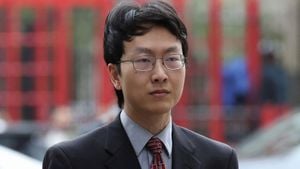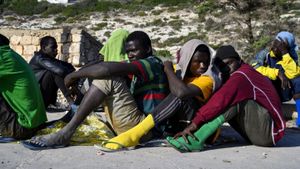A U.S. District Judge appointed by Donald Trump has expressed his concerns over potential blanket pardons for individuals involved in the January 6th Capitol riot, calling such actions "beyond frustrating and disappointing." Judge Carl J. Nichols made this statement during a hearing on November 19, 2024, where he postponed the trial for defendant Edward “Jake” Lang until after Trump's inauguration.
Lang has been charged with multiple offenses related to his actions during the riot, including assaulting police officers. His defense raised the issue of Trump possibly issuing pardons, arguing it might influence the trial's relevance. Nichols, who admitted he postponed the trial reluctantly, emphasized the judiciary’s duty to navigate politically charged cases fairly and uphold the rule of law.
During his remarks, Judge Nichols pointed out the ambiguity surrounding the reality of pardons, stating, "The possibility of some pardons, at least, is a very real thing." This sentiment captures the anxieties shared among legal observers who worry about the intersection of judicial processes and political maneuvers.
Despite Trump's longstanding support of the rioters, labeling them as "patriots" during his campaign, many courts have pushed forward with prosecutions. Over 1,500 individuals have been charged due to their involvement on January 6, and the trend within the judiciary has largely been to deny requests for trial delays based on potential presidential pardons.
Judge Nichols' comments reflect the discomfort felt within the legal community as Trump’s possible return to the presidency looms. He, along with several other judges, has been faced with requests to pause trials, grounded on speculation about upcoming clemency. For Nichols, this highlights the challenges judges face when political landscapes shift.
This isn't the only trial influenced by the dynamics of Trump's political aspirations. Other judges have similarly remarked on the disruptive nature of delays based solely on potential pardons. For example, Judge Reggie Walton recently denied postponement requests, stating, "The speculative nature of what Mr. Pope hopes will be a pardon is not a sufficient reason to continue this trial."
Judges across various cases have shown resilience, carrying on with hearings, sentencing, and plea negotiations regardless of the political climates surrounding their cases. This continuity serves to reinforce the point they often make: the law must prevail irrespective of political motivations.
Lang has openly expressed optimism about obtaining clemency since Trump's election victory, proclaiming on social media shortly after the results were announced, "we are finally coming home.” His rhetoric exemplifies the sentiments of many January 6th defendants who have continued to rally behind the narrative of victimhood at the hands of government oppression.
During the hearing, prosecutors contended against the rationale for delaying the trial. Assistant U.S. Attorney Karen Rochlin argued Lang’s hoped-for pardon was "purely speculative" and insisted on moving forward with legal proceedings. The government raised concerns not only for the integrity of the judicial process but also the interests of victims, witnesses, and the public.
While Nichols did proceed to postpone the trial, he acknowledged the long wait these cases have experienced, hinting at the broader public interest involved. This was echoed by other judges, who have underscored the significance of delivering justice swiftly, ensuring public confidence remains intact, especially for cases as notorious as those relating to the January 6 riot.
The courtroom exchanges reveal the tensions at play. Many Capitol riot defendants are caught between their desire for clemency and the relentless march of justice determined to hold them accountable for their actions on one of the darkest days for American democracy. Judge Nichols' discontent with the potential for mass pardons isn’t merely legalistic but resonates deeply with the principle underpinning the American legal system, which prioritizes accountability over politics.
Lang's trial remains emblematic of the broader struggle within the judicial system to arrive at fair resolutions without succumbing to external political pressures. His many social media posts from the day of the riot have been presented as evidence against him, illustrating how the intense events of January 6 were not just spontaneous but involved active participation and planning by many, including those now seeking pardons.
Despite all the talk of pardons, the counter-argument remains strong: the judiciary must not serve as a pawn to political games but instead function as the gatekeeper of justice. The voices from the bench, like Nichols', are increasingly important as they remind us, and the nation, of the collective responsibility to uphold the integrity of the law.
The sprawling narrative of January 6 and its aftermath continues to challenge America, showcasing the extent to which political impulses can influence judicial outcomes. But with judges like Nichols standing firm against blanket pardons, it remains to be seen just how the intersection of law and politics will evolve as new developments unfurl.



